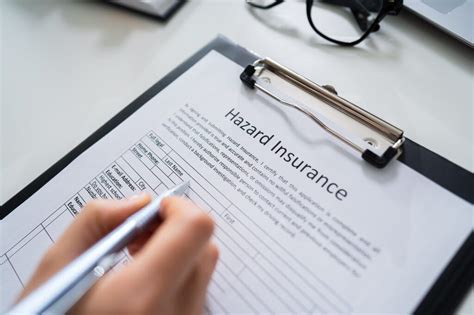Navigating the insurance claim process can be daunting, but understanding the essentials can make a significant difference in the outcome. “Mastering the Insurance Claim Process: Essential Tips for Successful Claims” is designed to guide you through each step with clarity and confidence. From grasping the basics to avoiding common pitfalls, this article covers everything you need to know to ensure a smooth and effective claim. We’ll explore the crucial steps, necessary documentation, and strategies for dealing with insurance adjusters, as well as how to handle denied claims and seek professi
Let’s examine this topic closely with ugodj.com
1. Understanding the Basics of Insurance Claims
Insurance claims are formal requests made to an insurance company for compensation or coverage based on a policyholder’s contract. Understanding the basics is crucial for navigating this process effectively. Insurance claims typically arise from incidents like accidents, property damage, or health issues, depending on the type of insurance.
To start, familiarize yourself with the specific terms and conditions of your policy, as these will dictate what is covered and any exclusions. Each policy has different coverage limits and requirements for making a claim. When an incident occurs, promptly report it to your insurer, as many policies have strict deadlines for filing claims.
Your insurer will then investigate the claim, which may involve assessing damages, reviewing documents, and sometimes interviewing witnesses. This process determines whether the claim is valid and, if so, how much compensation you are entitled to.
Being proactive and organized is key. Keep detailed records of all communications, damages, and expenses related to the incident. Understanding these fundamentals helps streamline the process and sets the stage for a suc

2. Key Steps in Filing an Insurance Claim
Filing an insurance claim involves several key steps to ensure a smooth and successful process. First, notify your insurance company about the incident as soon as possible. Most policies require prompt reporting, so contact your insurer and provide them with initial details about the claim.
Next, gather and document all relevant information. This includes taking photographs of any damage, obtaining repair estimates, and collecting any medical records if applicable. Detailed records of the incident and related expenses will support your claim and facilitate a quicker resolution.
Fill out the claim form provided by your insurer, being thorough and accurate. Double-check all information to avoid errors that could delay the process. Submit the completed form along with any supporting documentation.
Follow up with your insurance company to confirm receipt of your claim and inquire about the next steps. Stay in regular contact to track the progress and respond promptly to any requests for additional information.
Finally, review the settlement offer carefully. If you agree with the terms, accept the offer; if not, be prepared to negotiate or appeal if necessary. Understanding and following these steps can significantly impac

3. Common Mistakes to Avoid During the Claim Process
Avoiding common mistakes during the insurance claim process can prevent delays and increase the likelihood of a successful claim. One frequent error is failing to report the incident promptly. Many insurance policies have strict time limits for filing claims, and delays can result in denial or reduced compensation.
Another mistake is incomplete or inaccurate documentation. Ensure all forms are filled out correctly, and provide detailed records of damages, repairs, and expenses. Missing or incorrect information can lead to complications and delays in processing your claim.
Not keeping thorough records of all communications with your insurer is also problematic. Document every phone call, email, and letter related to your claim, including the names of representatives you speak with and the details of your conversations. This helps ensure that your claim is processed correctly and provides a reference in case of disputes.
Additionally, be cautious about accepting the first settlement offer without review. Insurers may offer less than what you are entitled to, so evaluate the offer carefully and compare it with your documented expenses and damages. If necessary, negotiate or seek further clarification.
Finally, avoid making assumptions about what is covered under your policy. Read your policy documents thoroughly and seek clarification from your insurer if needed to fully understand your coverage.

4. Documentation Required for a Successful Claim
Proper documentation is crucial for a successful insurance claim. Start by collecting evidence of the incident, such as photographs of damages, accident scenes, or injuries. These images provide a clear record of the extent and impact of the damage or loss.
Next, gather any relevant receipts and invoices related to repairs, medical treatments, or other expenses incurred due to the incident. This documentation helps substantiate your claim and provides proof of the costs involved.
Obtain repair estimates from professionals if applicable. These estimates validate the necessary repairs and support your claim for compensation.
Include a detailed written statement describing the incident, including the date, time, and a narrative of what occurred. This statement provides context and supports your claim with a clear explanation.
Collect any additional documents required by your insurance policy, such as police reports, medical reports, or witness statements. Ensure all documents are organized and submitted according to your insurer’s guidelines to facilitate a smooth review process and help ensure a favorable outcome.
5. Dealing with Insurance Adjusters: Do’s and Don’ts
When dealing with insurance adjusters, following key do’s and don’ts can impact your claim’s outcome.
Do:
Be Clear and Honest: Provide accurate information about the incident and damages. Honesty helps build trust and ensures a fair assessment.
Document Everything: Keep detailed records of all interactions with the adjuster, including dates, times, and the content of conversations.
Stay Professional: Maintain a courteous and professional demeanor during communications. This can positively influence the adjuster’s approach to your claim.
Don’t:
Don’t Rush Decisions: Avoid making hasty decisions or accepting the first settlement offer without reviewing it thoroughly. Ensure it covers all your expenses and damages.
Don’t Provide Unnecessary Information: Stick to relevant facts and avoid divulging personal details that aren’t pertinent to the claim.
Don’t Agree to Recorded Statements Without Preparation: Be cautious when agreeing to recorded statements. Ensure you understand what you are being asked before providing responses.
These practices can help you navigate interactions with
6. Tips for Negotiating a Fair Settlement
Negotiating a fair settlement involves careful preparation and strategic communication. Start by thoroughly reviewing your policy and understanding the coverage limits and exclusions. This knowledge will help you assert your rights and ensure you’re asking for what you’re entitled to.
Gather all relevant documentation, including repair estimates, medical bills, and evidence of damages. This will support your position and provide a solid basis for your negotiation.
When communicating with the insurance adjuster, clearly articulate your needs and be prepared to justify your claim with the documented evidence. Remain professional and assertive but avoid confrontational behavior.
Be patient and prepared for multiple rounds of negotiation. The initial offer might be lower than what you’re entitled to, so don’t hesitate to counteroffer based on your documented expenses and losses.
If negotiations stall or if you’re dissatisfied with the offer, consider seeking advice from a professional, such as a public adjuster or an attorney, who can provide additional support and guidance in
7. How to Handle Denied Claims and Appeals
Handling denied claims and appeals requires a methodical approach to address the issues effectively. If your claim is denied, start by carefully reviewing the denial letter to understand the specific reasons for the decision. Common reasons include insufficient documentation, policy exclusions, or errors in the claim submission.
Gather all relevant information and documentation related to the claim, ensuring it is complete and accurate. Identify any discrepancies or missing information that might have contributed to the denial.
Next, contact your insurance company to discuss the denial. Request a detailed explanation and ask for guidance on the appeal process. In many cases, insurers have formal procedures for appealing denied claims.
Prepare a written appeal that addresses the reasons for the denial. Include any additional documentation or evidence that supports your case. Clearly explain why you believe the claim should be approved based on your policy coverage.
Submit your appeal within the timeframe specified by your insurer, and follow up regularly to track its progress. If the appeal is unsuccessful, consider seeking advice from a legal professional or public adjuster to explore further options.
8. The Role of a Public Adjuster: When and Why to Hire One
A public adjuster is a licensed professional who represents policyholders in insurance claims, ensuring that their interests are adequately addressed. Hiring a public adjuster can be beneficial in complex or large claims where expert assistance is needed.
Public adjusters handle various tasks, including evaluating damages, estimating repair costs, and negotiating with insurance companies. Their expertise can help identify all potential areas of compensation that you might overlook and ensure that the claim is thoroughly documented and justified.
Consider hiring a public adjuster if you encounter difficulties in the claims process, such as disputes over the claim amount, delays, or complicated policy terms. They are particularly useful when dealing with extensive property damage or significant financial losses.
A public adjuster can provide valuable support and advocacy, making the process less stressful and improving the chances of a fair settlement. However, be aware that public adjusters charge fees, usually a percentage of the settlement amount, so weigh this cost against the potential benefits they offer.
9. Legal Rights and Resources for Policyholders
As a policyholder, you have several legal rights and resources available to ensure your insurance claim is handled fairly. Firstly, you have the right to a timely and thorough review of your claim, as stipulated by your policy and state regulations. Insurers are required to act in good faith and provide clear explanations for any claim denials or delays.
You also have the right to appeal a denied claim and request a detailed explanation of the decision. If you believe your insurer is not fulfilling its obligations, you can file a complaint with your state’s insurance department, which regulates insurance practices and can assist with disputes.
Additionally, consider seeking legal advice if you face complex issues or need help negotiating a fair settlement. Attorneys specializing in insurance law can provide guidance and represent your interests in disputes or appeals. Utilizing these resources can help pro
Mastering the insurance claim process involves understanding the basics, avoiding common mistakes, and effectively handling negotiations and denials. By following the essential steps outlined, gathering the right documentation, and knowing when to seek professional help, you can enhance your chances of a successful claim. Empower yourself with this knowledge to navigate the process with confidence and secure a fair resolution.
ugodj.com

